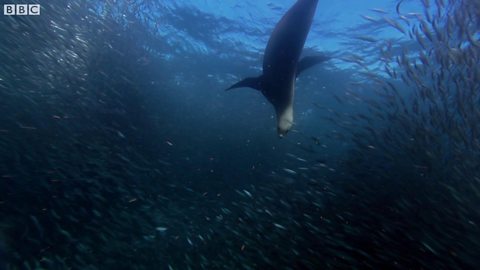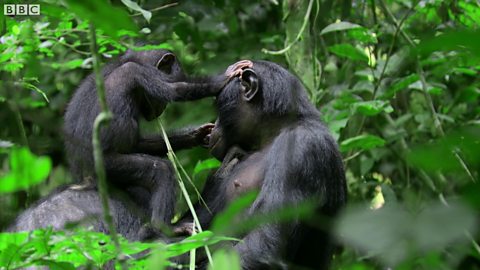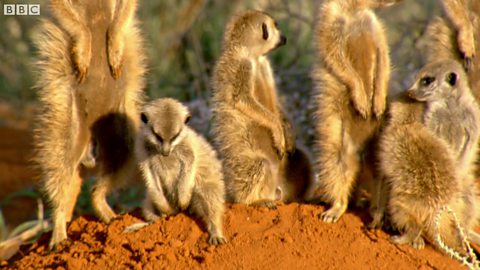Making Mindful Escapes
2020 has created a new normal. Whenever and however the world comes through the pandemic, things will never be quite the same again. And with all the turmoil, lurid Covid 19 headlines and uncertainty comes stress, so how do we find ways of helping alleviate the impact?

One man who regularly helps millions of people deal with their anxiety is Andy Puddicombe, a former Buddhist monk and the voice and co-founder of the Headspace App.
Andy spent many years in the Himalayas learning his craft, and believes that we can feel less stressed, less tired, and achieve a new level of calm and fulfillment in just ten minutes a day, by either meditating or practicing mindfulness.
So what happens when Andy is combined with another known calming mechanism – spending time in the natural world? Particularly when science tells us experiencing it digitally can be really good for us too.
The result is a co-production between Headspace and the Βι¶ΉΤΌΕΔ’s Natural History Unit to create the series Mindful Escapes: Breathe, Release, Restore.

Mesmerising bait ball images help us breathe
The hypnotic nature of huge shoals of fish can help us focus on our breathing.
It turned out that Andy is a big fan of the NHU, and in particular David Attenborough and his documentaries. And he saw a natural harmony between looking at wildlife images from around the world and combining them with his mindfulness philosophy. An actual mediation exercise was ruled out early – to meditate you need to close your eyes, and this was a commission for Βι¶ΉΤΌΕΔ FOUR commission rather than for RADIO 4.
[Andy] saw a natural harmony between looking at wildlife images from around the world and combining them with his mindfulness philosophy.
Production started once the UK was well into Lockdown, with the team spread out around Bristol and London, and Andy and his Headspace executives in Los Angeles. Of course we were united by zoom, and ideas were brainstormed about where did we start – with pictures or with words?
It ended up being a bit of both. Toing and froing from each side. Sequences were sent over to Headspace and we learnt what was restful and restorative and what wasn’t. Without trying to sanitise the world, it made sense that animals fighting, mating and eating each other wasn’t going to be very therapeutic. But teams at the NHU have spent years and much expertise gathering such behaviour – how much was left over once all this was ruled out?

Animal disguises in the jungle
These masters of disguise show us that adapting to our surroundings can reduce stress.
Eventually we found enough archive footage to work with, and along the way learnt that jellyfish and lemurs can be mindful and mesmerising but too much wind noise is stressful; water sounds and blossom swaying are soothing but lots of frogs can be a turn off.
We worked with Exeter University psychologist Alex Smalley who has looked into how immersion in digital nature might be used to alleviate stress...
Science played a large part in the process too. We worked with Exeter University psychologist Alex Smalley who has looked into how immersion in digital nature might be used to alleviate stress and elicit calmness, allowing brains to restore and replenish.
He pointed out that coastal and green spaces have particular value, and an important factor would be to keep the whole programme fluid, enabling the viewer to stay in a bubble (not the new self isolating Covid kind). It was also going to be important to avoid too much repetition. This wasn’t a TV spa trip but each programme should take the viewer on an emotional journey. A sense of wonder and awe, excitement and calmness were all going to be vital.

Chimps hang out in the jungle
Joyful images of families of chimps swinging from the trees and grooming each other.
Armed with all this information, we rejigged themes and Andy’s mindfulness philosophies to fit in with what we now knew. A light touch with music was agreed upon and ultimately a sparse narration to allow the natural sounds to be a key part of the experience.
the result is a series that is lyrical and beautiful, of its time
For a series aimed at helping people reduce their anxiety, there were many moments when it had the opposite effect for those of us making it, given the issues of co producing a series under Covid 19, making key editorial decisions via Zooms across the world. But the result is a series that is lyrical and beautiful, of its time, and will hopefully do just a little bit of good for people

What can tired meerkats tell us about resting?
Meerkats falling over on duty can have a soporific effect.
